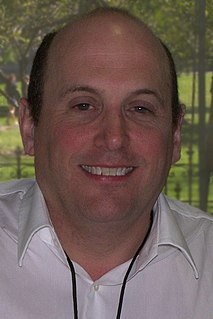A Quote by Noam Chomsky
I've often been struck by the extensive knowledge that people have of sports, and particularly, their self-confidence in discussing it with experts. . . . In contrast, when discussing matters of concern to human lives - their own and others - people tend to defer to experts.
Related Quotes
It’s in our interest to take care of others. Self-centrednes s is opposed to basic human nature. In our own interest as human beings we need to pay attention to our inner values. Sometimes people think compassion is only of help to others, while we get no benefit. This is a mistake. When you concern yourself with others, you naturally develop a sense of self-confidence . To help others takes courage and inner strength.
Most people consider themselves above the gritty and relentless details of life that allow the creation of great wealth. They leave it to the experts. But in general you join the one percent of the one percent not by leaving it to the experts but by creating new expertise, not by knowing what the experts know but by learning what they think is beneath them.
Something happens in school sometimes where you're like, 'Oh, I'm not an expert, and I have to defer to people who are.' And it happens not just in school: it happens in religion, too. Defer to the experts. A printing press is a big deal - they got the Bible, and all of a sudden they could read it for themselves.
Most of what we know we don't really know first hand. I've never seen a cancer cell. But I trust this community of experts who have, so I believe that cancer exists. But we trust these experts, and we trust that the experts have a system of checks and balances and self-correction. And we have to insist that experts have certain certifications. They're not perfect. Every once in awhile there's an engine falls off the wing of a plane, or a tax audit happens and you find out your expert made a mistake. But it's a pretty good system. It's the best system we've got.
My main interest is in the promotion of human values. From birth we have a sense of affection and some sense of concern for others. We need to nurture it. Scientists have found that to ensure even physical health peace of mind is essential. People often think that love and compassion are only matters of religious concern, but in fact such values are necessary in all human relations
In my own life, I found that whenever I wasn't sure what to do next, I would go and learn a lot, read a lot, talk to experts. I don't know how the human brain works, but it's almost magical: when you read enough or talk to enough experts, when you have enough inputs, new ideas start appearing. This seems to happen for a lot of people that I know.
Too often, it seems, conservatives have scorned experts as incompetent, biased, or otherwise worth ignoring because they came up with answers that didn't fit their politically desired answer. Often, they proclaim experts have a liberal bias. Of course, plenty of Democrats have voted for conservative ideas, but that is beside the point.




































